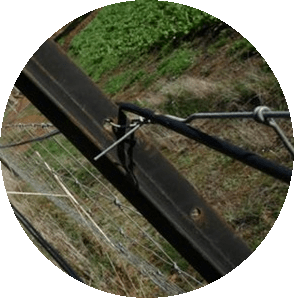
The Communications Workers of America says when it comes to “stealthy” bills like S.B. 1611 that deregulate telecommunications in California, “no price is too high — no lie is too big.”
AT&T and the American Legislative Exchange Council (ALEC) are back again fighting for more deregulation of California’s telecommunications industry with a bill that will strip oversight of vital telecommunications services and stop punishing bad actors that leave customers without telephone service, sometimes for weeks.
California legislators are typically not responsive to the wholesale deregulation efforts that seem to draw support in more conservative states, so AT&T’s lobbyists are trying a more “incremental” approach in the state. But AT&T has also inserted “stealth” language into the bill that would dismantle consumer protections, allow companies to abandon unprofitable landlines, and strip away important oversight “checks and balances” needed to ensure good service.
Sen. Padilla’s top corporate contributor is AT&T.
S.B. 1611 illustrates that AT&T can buy its way into any legislator’s office, Democrat or Republican. The bill’s chief sponsor, Rep. Alex Padilla (D-20th Senate District) has received more contributions from AT&T than from any other corporation in both the 2006 and 2010 elections.
The bill ostensibly claims to limit its scope narrowly to “Voice over Internet Protocol” (VoIP) and “Internet Protocol enabled service.” That brings to mind services like “digital phone service” from cable companies or alternative telephone services like Vonage, magicJack or Skype.
The bill would prohibit any department, agency, commission, or political subdivision of the state from enacting, adopting, or enforcing any law, rule, regulation, ordinance, standard, order, or other provision having the force or effect of law, that regulates VoIP or other IP enabled service, unless required or delegated by federal law or expressly authorized by statute. The bill would specify certain areas of law that are expressly applicable to VoIP and IP enabled service providers. The bill would provide that its limitations upon the commission’s regulation of VoIP and IP enabled services do not affect the commission’s existing authority over non-VoIP and other non-IP enabled wireline or wireless service….
To the layperson who generally believes services like Skype and Vonage might not deserve the same oversight as AT&T, Frontier, or Verizon — which provide Californians traditional landline service, consider Section 2 (a)(2) of the bill, which describes and defines VoIP and IP enabled service as anything that:
“Permits a user generally to receive a call that originates on the public switched telephone network and to terminate a call to the public switched telephone network” and “any service, capability, functionality, or application using existing Internet Protocol, or any successor Internet Protocol, that enables an end user to send or receive a communication in existing Internet Protocol format, or any successor Internet Protocol format through a broadband connection, regardless of whether the communication is voice, data, or video.”
This “narrow” deregulation bill just grew as wide as the Gulf of Mexico and can realistically allow any phone company in California to ignore state oversight and regulation forever.
Traditional telephone companies increasingly utilize exactly these technologies for calls placed over ordinary landline phones. Using broadband service to engage in two-way communications also qualifies. With this kind of defining language, virtually every telecommunications service in the state of California would win near-total deregulation and walk away from important oversight. The California Public Utilities Commission certainly understood the implications of this bill when the majority of commissioners came out in opposition to S.B. 1611.
Goodbye Universal Service: S.B. 1611 Allows Phone Companies to Abandon Rural and Economically Distressed California Communities
Several public interest groups also discovered language in the bill that is a perennial favorite of AT&T — eliminating universal service requirements that assure every citizen that wants a telephone line can get one. S.B. 1611 lays waste to Section 709 of the California Code which guarantees: “our universal service commitment by assuring the continued affordability and widespread availability of high-quality telecommunications services to all Californians.”
With that language gone, the state’s phone companies can unilaterally decide to abandon the customers they no longer want to serve. That could spell disaster in rural northern and eastern California, and leave low income residents with nothing but a dead phone line, unable even to call 911 in an emergency.
One AT&T Lobbyist for Every California Lawmaker
The importance AT&T places on influencing lawmakers is readily apparent when one realizes there are at least 120 AT&T lobbyists working in the state capital Sacramento, one for every California lawmaker.
But when one considers the track record of California phone and cable companies in the last few years, is less oversight and regulation the right answer?
- Verizon Sued for Providing DSL Speeds (Suitable for VoIP) They Can’t Deliver
- AT&T Gouges California With 25% Rate Increase
- California Landline Nightmare: Residents in Bakersfield in Tears Over Lousy Service
- Southern California Power & Phone Companies Blamed for Devastating Wildfires
- Verizon Bills Dead People: We’ll Settle for Half Because She’s No Longer Among the Living
- Frontier’s Goodbye Kiss: A $680 Final Bill for a Departing Customer
- Calabasas Residents Annoyed by “Corrupt and Deceptive” Charter Cable; Time Warner Cable Also Called Out
- Time Warner Cable Guy Arrives Late to Service Call, Leaves Claiming Homeowner Had “Bad Air”
- More Frontier Problems: Californians Wait Months on Refunds for Disconnected Landlines
- The Many Challenges of Charter Cable: Rate Increases for Seniors, Bankruptcy, Employees Attacked, Customers Hassled
- AT&T’s California Gold Rush: Company Lobbyists Spread the Money Far and Wide
“SB 1161 is a stealth vehicle for the gradual deregulation of telecommunications in California,” the Consumer Federation of California declared on their website. “Consumers need the CPUC to have the power to investigate complaints of bad service or unfair charges on bills, regardless of the technology used to provide phone service.”
Call to Action!
Consumers across California need to get on board immediately to stop S.B. 1611. You can file online opposition courtesy of Free Press, but it is far more effective to also directly phone your own legislator and leave a message to urge this bill be defeated. It literally takes only 2-3 minutes to call and the money and phone service you could save will be your own. Use this district finder to contact your representatives.
S.B. 1161 is scheduled for hearing in the Assembly Appropriations Committee this Wednesday, so time is of the essence!


 Subscribe
Subscribe









